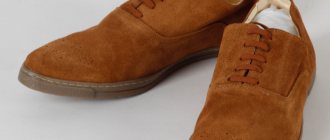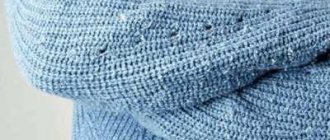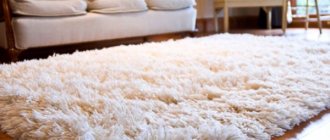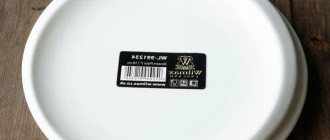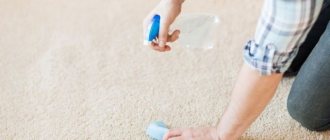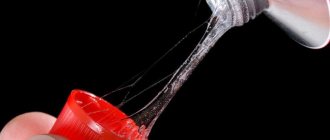- June 20, 2019
- A woman's world
- Daniil Belousov
Every parent knows that children simply love to sculpt something interesting from plasticine. This is a fun and creative process that often ends in disaster for the carpet. If a small piece of plasticine falls on it and then a child steps on it, then in this case you will have to really rack your brains about how to clean the floor covering.
But don’t rush to swear at your child right away. There are many ways to remove plasticine from a carpet. But first you need to understand what you have to deal with.
What is plasticine
Although all the adults themselves played with him in childhood, not everyone knows what he is. But in order to figure out how to clean plasticine from a carpet, it will be useful to know what it consists of and what effect it has on the surface.
This component is an elastic soft mass intended for modeling. It is recommended for developing hand motor skills and creative thinking in a child. Therefore, usually every boy and girl has one.
As a rule, plasticine is produced from filtered clay powder, to which a small amount of wax, fat, paraffin and other ingredients are added. They prevent the material from drying out, so it always remains elastic.
Plasticine is very easily removed from the skin, but if it falls on carpet pile or any other fabric, then serious problems can arise. In addition, every housewife who has ever encountered plasticine has noticed that it leaves behind very greasy stains. Not surprising, because it contains fats and paraffin. So how can you remove plasticine from a carpet using the most accessible and cheapest means?
Thermal impact
The first thing that comes to mind is to treat the plasticine as with regular chewing gum, that is, cool it. However, stuffing an entire rug into a freezer is not impossible.
In this case, you need to arm yourself with ordinary paper napkins and an iron. After this, you need to follow a fairly simple algorithm. First you need to turn the rug face down. Place a paper napkin under the dirt, which is folded in several layers. It is also necessary to place a paper napkin on the wrong side of the plasticine stain.
At the next stage, you should heat the iron and apply it to the napkin that was originally located on the wrong side. You should not hold the iron for a long time, since if the plasticine melts too much, this will only aggravate the problem.
You just need to wait until the plasticine becomes more liquid and does not completely stick to the paper napkin. When performing such a procedure, it will be very difficult to immediately get rid of plasticine. However, if you repeat it several times, the carpet will quickly clean.
There are other methods for removing plasticine from carpet.
Product Features
To produce the modeling mass, clay, crushed to a powder, Vaseline, fats, and dyes are used. Thanks to this, the mass remains plastic for a long time and easily sticks to different objects.
To clean the carpet, it is necessary to remove the maximum amount of plasticine using mechanical and physical methods. After this, you can begin to remove the greasy colored stain remaining on the coating.
Advice! In addition to regular plasticine, there are water-based varieties of this product on sale. Its peculiarity is its rapid hardening. After about a day, such plasticine becomes rigid and loses its ability to stick to surfaces. If this particular variety gets on the carpet, then you just need to wait until the plasticine hardens, then it can be easily removed by simply picking it up with your hands.
Soap solution
It is worth noting that using ordinary water is completely useless. It will not be able to destroy polymer compounds. But if you mix it with a small amount of soap, you get an effective product that will help remove plasticine from the carpet.
However, you need to pay attention that for such a composition you need to use only laundry soap. It is able to penetrate deeper into the villi and quickly clears away the stuck mass.
In order to get rid of such a nuisance, you need to take a bar of soap (about 40 grams) and grate it on the finest grater. After this, half a glass of warm water is added to the composition. All components are thoroughly mixed until a foamy substance is obtained. The resulting mass should be applied to the sponge and wait about ten minutes until it is completely saturated with soapy water. After this, it is enough to lay it on the dirt and wait until it dries completely. When everything is ready, just rinse the carpet with cool water.
If this method does not work, then you can use another remedy.
Alcohol
We continue to figure out how to remove plasticine from the carpet. Any housewife knows that using a product such as alcohol can quickly clean most surfaces. However, rarely does anyone use it if the dirt is on the carpet. But in vain.
This is a fairly simple remedy that helps to quickly solve the problem of how to clean a rug from plasticine. To do this, you will need to generously moisten a cotton pad in alcohol and carefully walk over the contaminated surface. Particles of the adhesive mass will roll off and stick to the cotton wool. A similar procedure must be performed until complete cleansing.
Bad advice
Despite the large number of useful tips, you can also find harmful ones on the Internet that can ruin things. You shouldn't listen to them.
- You should not clean colored and black clothes with hydrogen peroxide in its pure form. To clean, you need to use a solution with water.
- Do not remove dirt from children's clothing with kerosene or chemical solvents.
- You cannot remove plasticine with a vacuum cleaner, so as not to clog the filter and damage the device.
- Do not try to wipe off fresh soft plasticine with a damp cloth or wet rag, this will only worsen the situation and increase the area of contamination.
- Avoid razors and sharp knives as they can damage fabric fibers and cause holes.
Rough cleaning
You should immediately pay attention to the fact that you should resort to this method only if none of the other means helped to cope with the problem. How to clean the carpet from plasticine in this case? You will have to move on to radical actions, which include mechanical cleaning.
To do this, large pieces of plasticine must be cut with a knife. If possible, try to capture as little lint as possible. But some of them will still have to be removed. After this, you need to arm yourself with a stiff brush and carefully walk over the surface. This will certainly help get rid of plasticine particles, but you need to be prepared for the fact that bald spots will remain on the carpet. Therefore, it is worth trying all other options first.
Necessary cleaning supplies
The technical side of the issue is as important as the chemical one. The following tools will be useful for the job:
- Stack for plasticine.
- Metal table knife or spatula.
- Dish sponge.
- Toothbrush (old).
- Clothes brush with artificial bristles.
- Paper napkins.
- Fabric terry towels.
- Gauze (or bandage).
The appropriate processing option must be selected based on the specific case. Next, we will describe the sequence and nuances of working methods.
Solvents
Speaking of how you can remove plasticine from a carpet, it’s worth considering this option. Regular Vanish will also work. Its components do an excellent job of removing fat and other components that cause a lot of headaches. But it is worth noting that although this product removes stains well, it is mainly used for light-colored things. In addition, such a composition is not cheap.
If you don’t want to spend a lot, you can use acetone, ammonia or even white spirit. However, you need to understand that these products have a very strong, specific odor, so all work should be carried out only with the windows open. You need to be prepared for the fact that the room will smell for several weeks after treatment. Therefore, it is advisable to take the carpet outside or to another place where it will be exposed to fresh air.
Also, before removing plasticine from the carpet, you need to conduct a small experiment. To do this, just drop a small amount of solvent onto a corner of the carpet or a part that is located in a place hidden from view (for example, under furniture). You need to wait a while and see how the color of the carpet has changed.
How to clean
If everything is in order, then you can safely moisten the sponge in solvent and place it on the damaged areas. However, it is not recommended to keep the composition for longer than 5-6 minutes. After treatment, you should clean the surface with soapy water.
It is worth noting that under the influence of the solvent, plasticine will turn into a very unsightly mass. But you don't need to concentrate on his appearance. Plasticine can be easily removed with a rag or rag.
Gasoline can be used in the same way. But you need to remember that this is an even more smelly composition, which is highly not recommended for use indoors, and even more so in a child’s room.
Rules and prohibitions
It is necessary to consider the type of coating before performing treatment. Synthetic products are cleaned with both home and purchased household chemicals. The same rule applies to products made from semi-synthetic materials.
It is not recommended to clean knitwear items yourself, because they lose their properties when exposed to water. It is better to dry clean such floor coverings.
Wire carpets are treated only with dry home remedies (salt or soda) without the use of liquids. Fur floor coverings, like wool flooring, cannot be washed. They are washed with slightly damp sponges or rags.
Unacceptable actions when cleaning a carpet:
- using sharp objects (scissors, knives) to scrape off remaining plasticine;
- refusal to use products that contain chlorine, as it leads to discoloration of the fabric;
- rolling the wet fabric into a tube for a long time.
Vegetable oil
It’s hard to believe, but if we talk about how to remove plasticine from a carpet, it’s worth considering this interesting option. Vegetable oil perfectly removes this kind of pollution. But after treatment, the surface will need to be washed with a soap solution. Otherwise, unsightly greasy stains will remain on the carpet, which will not solve the existing problem at all.
To get rid of plasticine, you must first remove all large pieces. There is no need to cut off the stuck mass; you only need to remove the layer that can be easily removed by hand. When only a plasticine stain remains on the carpet, just moisten a clean rag with vegetable oil and walk thoroughly over the surface. Just as when treating with gasoline, the plasticine mass will begin to roll into small balls and gradually move away from the floor covering.
After this, all that remains is to vacuum the carpet and wash it with a warm soapy solution. You need to make sure that there is not a drop of oil left on the carpet.
Available means
You can remove stains from plasticine on carpet using improvised means that are found in almost every home. But first you need to remove as much plasticine as possible mechanically. The remaining stain can be treated using one of the following methods:
- Salt, cleaning agent, vinegar. Prepare a cleaning paste by mixing “Extra” ground salt and any cleaning powder (for example, “Pemolux”) in equal volumes. This dry mixture is then diluted with table vinegar to form a paste. Apply the paste to the stained areas, leave until completely dry and clean off with a stiff brush. Then washed with water and dried.
- Soap and soda. This method is recommended for use on light-colored carpets, as dark ones may leave white stains. You need to prepare a cleaning solution by adding universal detergent or dish gel to the water. Lightly moisten the contaminated areas with soapy water, sprinkle them generously with baking soda and rub it into the surface. Leave until completely dry and vacuum well.
- Alcohol. Rubbing alcohol should be used. Moisten a napkin with the liquid and gently wipe the contaminated areas. Repeat the treatment several times until traces of plasticine disappear.
Alcohol can change the color of your carpet, so try it in an inconspicuous area first.
Baking soda
This is another effective way. The fact is that baking soda acts as an abrasive. Therefore, it effectively helps to remove contaminants of various types and origins. To remove plasticine from the carpet, you need to prepare soda powder. If you want to get a more effective product, it is recommended to add a little liquid soap or a soap solution prepared in advance.
When everything is ready, you need to generously sprinkle the product onto the affected part of the carpet. To improve the effect, you should first pour a little soap on the carpet. It will corrode the plasticine and make the task easier.
The next step is to apply baking soda to the stain and leave for 30-40 minutes. After this, the entire mixture is easily removed with a rag. If there are particles of plasticine left, you can carefully remove them with a toothbrush or carry out the procedure again.
However, it is important to consider that baking soda is also suitable primarily for light-colored fabrics. If the carpet is dark in color, there may be whitish spots on it.
Warming up with an iron
The thermal method of primary treatment is not suitable for all coatings - this must be taken into account. The second significant nuance is that the iron must be warm, not hot, otherwise the plasticine will be soldered in, the artificial pile will begin to melt, and the natural one will, of course, burn.
If all precautions are taken, the method will be effective and simple. Heat the iron to one and unplug it. Place a corner of a paper napkin on the stain. Without pressing, iron with the tip of the iron until a greasy mark appears on the napkin. Reposition the paper to cover the stain with a clean area and reheat. Repeat 1-2 more times.
After thermal cleaning, the remaining plasticine is washed off with carpet or furniture cleaner.
Hairdryer
The hair styling device produces too hot a stream of air, moreover, it is difficult to direct it to one point - therefore, such heating is ineffective and generally raises doubts. The unit is more suitable for the final stage, when a wet trace needs to be dried quickly.

